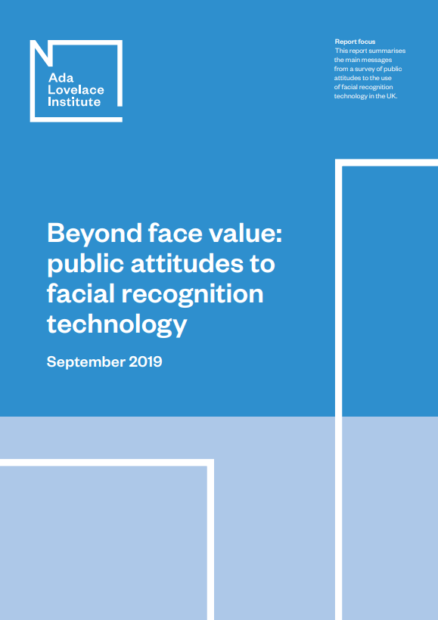Major new survey of UK public attitudes to AI launched
The Alan Turing Institute and the Ada Lovelace Institute are conducting a major new survey of public attitudes to AI and data-driven technologies.
5 December 2022
Reading time: 2 minutes

The Alan Turing Institute and the Ada Lovelace Institute are jointly conducting a major new survey to understand and monitor public awareness of and attitudes towards AI and data-driven technologies, supported by the Engineering and Physical Sciences Research Council (EPSRC) and the Arts and Humanities Research Council (AHRC)’s ‘Enabling a Responsible AI Ecosystem’ programme.
The nationwide survey will examine the UK public’s awareness and perception of AI, including the potential benefits and risks, as well as attitudes to AI governance and regulation.
The pioneering partnership combines Ada’s expertise in engaging with the public on issues of AI and society with the Turing’s cutting-edge research expertise, as the UK’s national institute for data science and AI. The survey will add new, invaluable insights on public attitudes to AI and data-driven technology through:
- A focus on specific technology use cases
- A survey design that will explore why people currently think the way they do about AI
- A representative sample of people who are currently offline (without internet access)
- A specific focus on AI rather than data
Participants will be asked about a range of specific uses of AI, from facial recognition and medical diagnostics to driverless cars and credit scoring. This will provide richer and more detailed insights than simply asking about ‘AI’ as an abstract concept.
The survey will generate a rich dataset providing policymakers, researchers and practitioners with robust evidence to help them ensure that AI and data-driven technologies work for people and society.
Andrew Strait, Associate Director (Research Partnerships) at the Ada Lovelace Institute, said:
‘Understanding what the public really think about the increasing use of AI and algorithmic decision-making is crucial to ensuring that these technologies work for people and society.
‘AI and data-driven technologies have the potential to deliver real benefits for society, but they also raise significant ethical issues that need to be understood and addressed.
‘We are grateful to the AHRC for recognising the importance of this initiative, and are pleased to be partnering with The Alan Turing Institute to deliver this landmark new research. This work will help inform policy, industry and future research to ensure that we maximise the benefits of AI.’
Professor Helen Margetts, Principal Investigator of the survey project and Director of the Public Policy Programme at The Alan Turing Institute, said:
‘Artificial intelligence technologies play an increasingly important role in our lives and societies. They shape the content that we see online, set some of the prices that we pay for goods and services, influence the political landscape, and are starting to improve clinical services. Given the increasing prevalence of AI, we need more research on how people experience data-driven innovation in order to develop AI technologies within appropriate ethical framework.
‘A better understanding of public attitudes towards AI will enable researchers, developers and policymakers to ensure AI technologies work for the public good. We are delighted to work with the Ada Lovelace Institute to conduct this research and very grateful to the EPSRC for their support.’
Related content

Who cares what the public think?
UK public attitudes to regulating data and data-driven technologies

Public attitudes to COVID-19, technology and inequality: a tracker
Tracking studies and projects that offer insight into people’s attitudes and perspectives to COVID-19, technology and inequality

Beyond face value: public attitudes to facial recognition technology
First survey of public opinion on the use of facial recognition technology reveals the majority of people in the UK want restrictions on its use